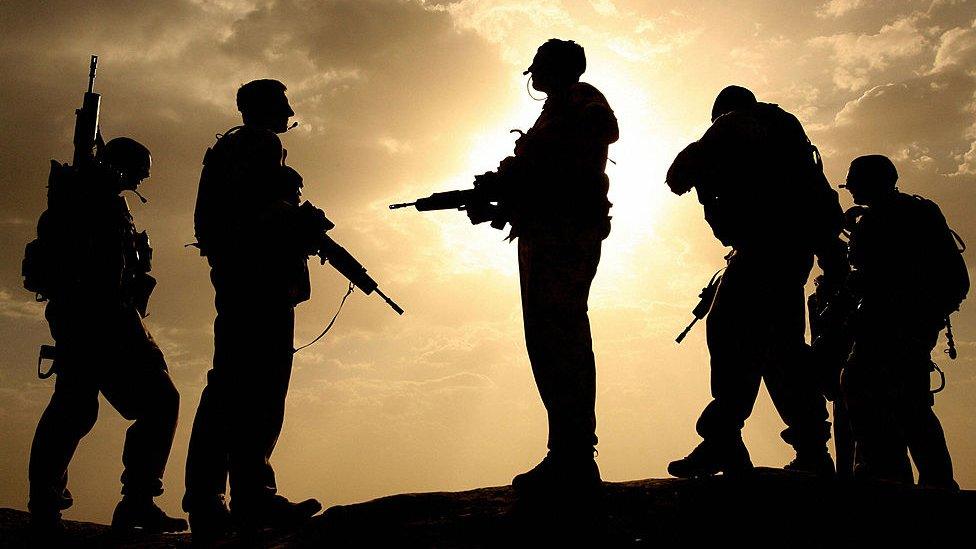Afghan interpreters fear families 'forgotten' by Canada
- Published
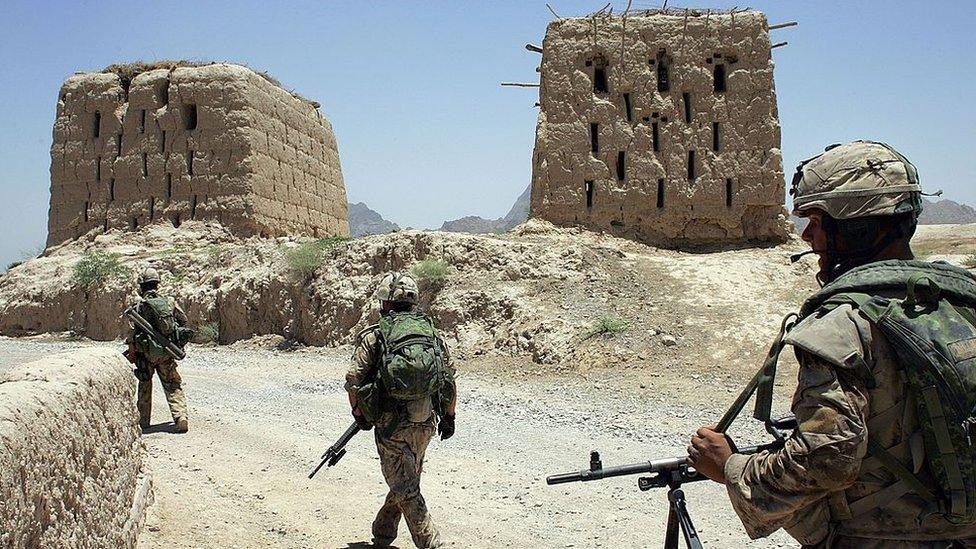
Hundreds of interpreters worked alongside Canadian troops in Afghanistan
In late 2011, Saifullah Mohammad Zahed was working as an interpreter for Canadian troops in Afghanistan's Kandahar province when he received a letter from the Taliban.
"They said they knew I was working for 'infidels' and told me to stop," he remembers. "They said they would kill me and my family if I didn't."
Soon after, Mr Zahed was able to move to Canada after six years working with Canadian and Nato forces in Kandahar, a province considered to be the birthplace of the Taliban.
It wasn't an idle threat.
"My dad was shot and killed by the Taliban," he told the BBC from his home in Calgary. "Since then, my family has been moving around, going from province to province. We've all been Taliban targets for a long time."
Mr Zahed is one of hundreds of Afghans who worked for Canadian forces as interpreters and in other jobs. Many are hoping to get their families out of Afghanistan - where they are at risk of retribution from the victorious Taliban - and bring them to Canada.
After the fall of Kabul last August, Canada's federal government vowed to welcome as many as 40,000 refugees and vulnerable Afghans to the country. As of 21 April, more than 11,300 Afghans had arrived in Canada.
As part of that effort, the government in November announced a pathway to permanent residency for extended family members of Afghan interpreters already in Canada.
But critics of the extended family programme have accused the government of burdening family members with unreasonable and often redundant bureaucratic hurdles - including documentation and biometrics - that result in delays.
Several Afghan interpreters in Canada described dozens of pages worth of necessary documents and few, if any, possibilities of family members leaving Afghanistan to complete the required steps in safety.
To date, not a single Afghan has made it to Canada through that programme.
Jenny Kwan is the opposition New Democratic Party's immigration critic, and has been advocating on behalf of at least 300 Afghan families - about 5,000 people in total.
She said that a primary problem is that many families still in Afghanistan are unable to safely travel to a third country where they can do the biometrics and submit the paperwork necessary to get to Canada.
"They're going to have to go to an office that's run by the Taliban right now and ask for passports," she said. "As you can imagine, red flags and alarm bells go off when the entire family shows up saying they need a passport to go to Canada."
Mr Zahed, for his part, said that the lives of family members still in Afghanistan are at risk each day they remain in the country.
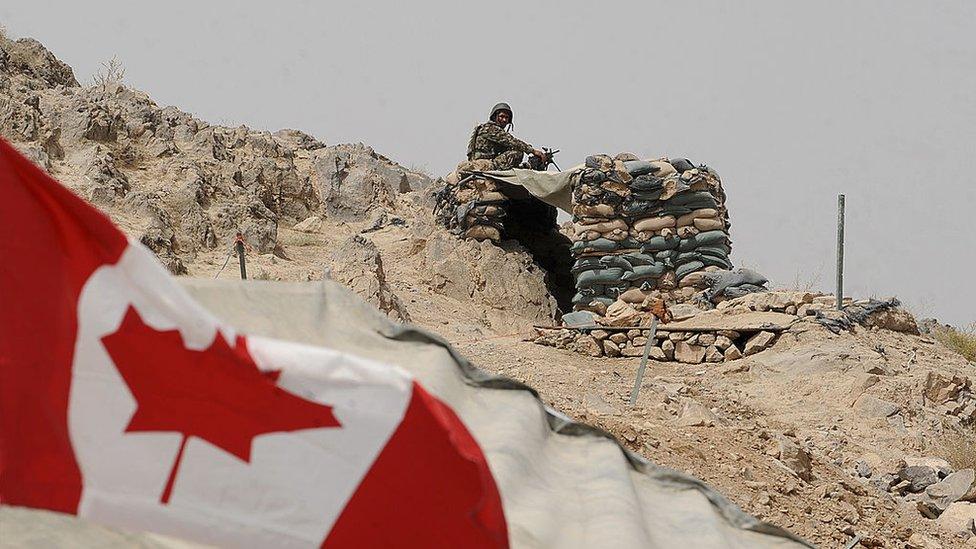
An Afghan soldier near a Canadian position in 2011 in Kandahar
While one of his two brothers was successfully smuggled out of the country to Turkey, another - who stayed in Afghanistan - has gone missing. His fate is unknown.
"The Taliban have been searching houses," he added. "I've got two other colleague that live here [in Canada] One has lost 11 [family members]since the Taliban took over. The other's sister was killed in a school. It's been really, really dangerous."
Another former interpreter, Ottawa-based Ghulam Faizi, told the BBC he has 18 members of his extended family left in Afghanistan, where they are living in hiding.
Three other family members have made it to Pakistan, where they have been waiting in vain for permission to travel to Canada.
"They've been there three months and now their Pakistani visas have expired," he said, saying some have never received a response from Canadian officials.
Many of the interpreters and those working on their behalf are frustrated by the treatment of Afghan allies when they look at how Canada is handling the process for Ukrainians fleeing war.
In the case of Ukraine, Immigration Minister Sean Fraser has announced that Canada will waive most visa requirements as well as biometrics for seniors and those under 18. Those who qualify for the emergency travel programme can stay in Canada for up to three years.
By the end of March, more than 60,000 Ukrainians and their families had applied through the programme.
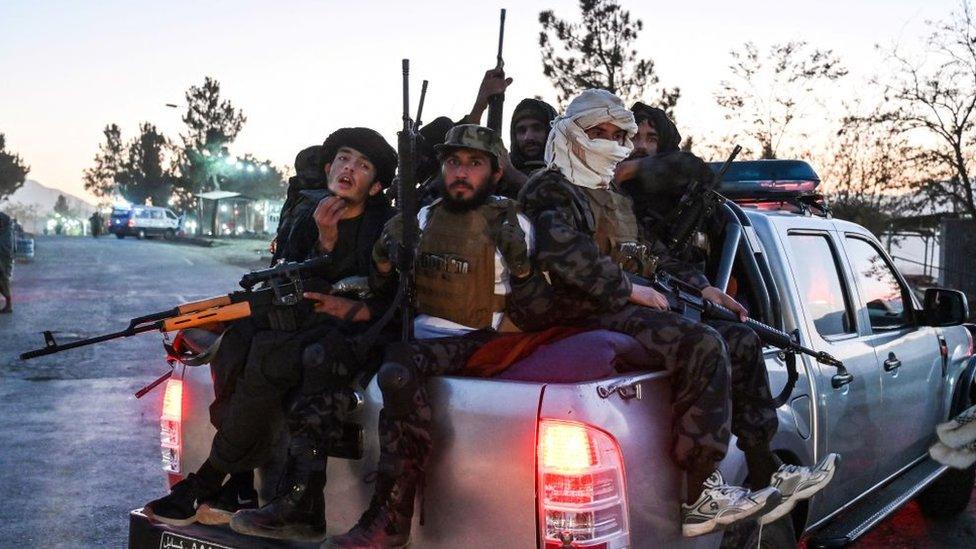
Former interpreters say that Taliban fighters have been hunting down family members of those with ties to Western forces
"No one understands the situation in Ukraine better than us. Our country was also invaded by the Russians," Mr Zahed said. "And we appreciate what the government is doing for them. But we should not be forgotten by the Canadian government."
According to Ms Kwan, short-term steps that can be taken by the government include waiving most of the documentation required and issuing a travel document that can be used to leave Afghanistan to a third country, from where they can travel to Canada.
As part of the measures announced to support Ukrainian refugees, Canada said it can issue a single permit travel document for refugees who don't have a passport or have an expired one, on a case-by-case basis.
"[They should] issue these travel documents like they do to Ukrainian nationals," said Ms Kwan.
Responding to questions from the BBC, Aidan Strickland, a spokesman for Immigration, Refugees and Citizenship Canada, said that "the hard truth is that there are obstacles facing us in Afghanistan that were not present in other large-scale resettlement efforts".
Those challenges include the fact that Canada has no presence in Afghanistan and that diplomatic efforts are impossible as a result of the Taliban's status as a terrorist entity under Canadian law, he said.
While Mr Strickland acknowledged that crossing Afghanistan's borders is dangerous and that "many vulnerable, at-risk Afghans" who qualify for Canadian programmes remain in the country, the government is doing what it can to help swiftly resettle Afghans.
As an example, he said that the departure of Afghan refugees in Pakistan is dependent on the Pakistani government's entry and exit requirements.
"Every step along the way there's a unique challenge depending on the circumstances," he said, adding that "the government of Canada remains firm in its commitment".
For interpreters such as Mr Faizi, however, these promises provide little comfort.
"We're also veterans. We fought shoulder-to-shoulder with them and supported the Canadian mission," he said. "But we're not being treated like allies, or even the other refugees that come to Canada."
- Published4 July 2022
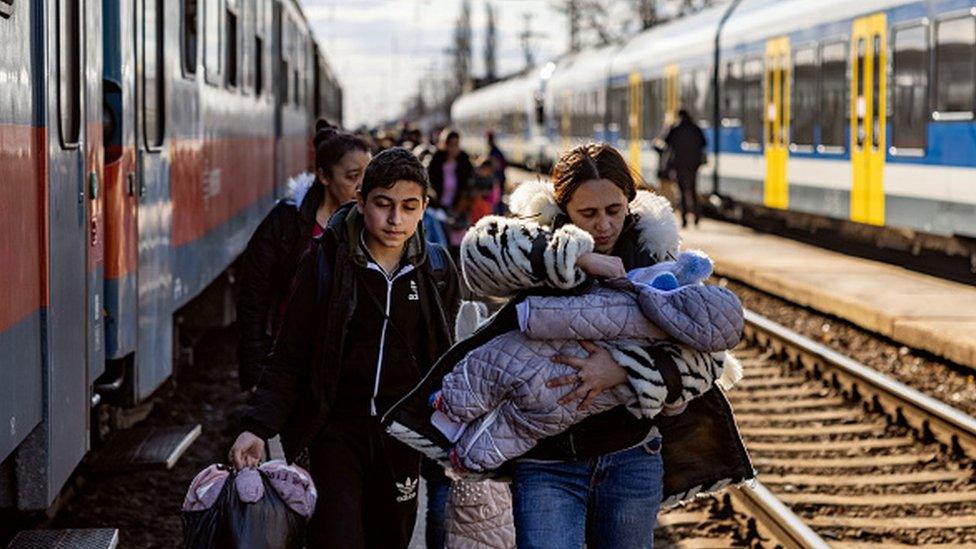
- Published12 April 2022
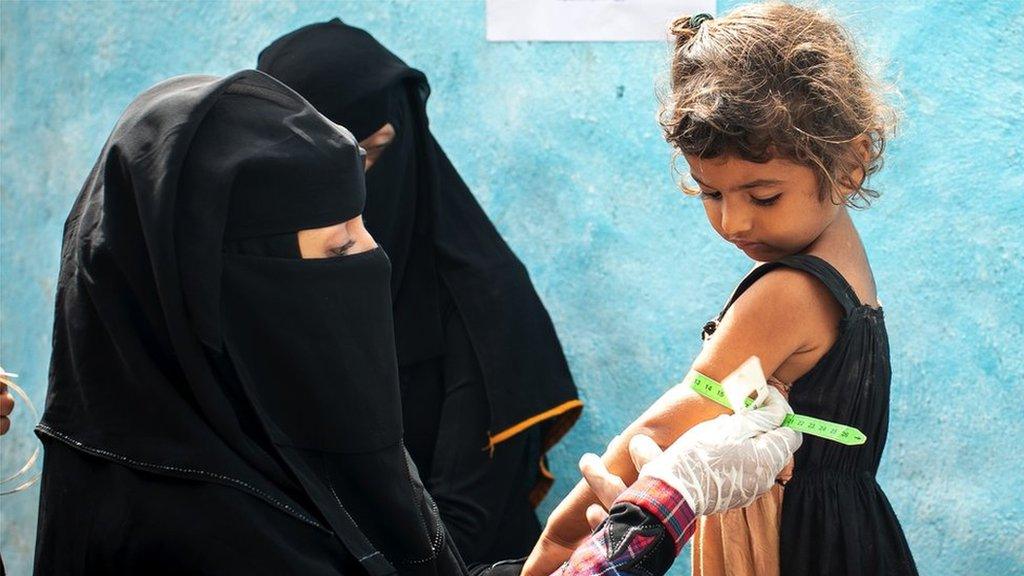
- Published3 March 2022
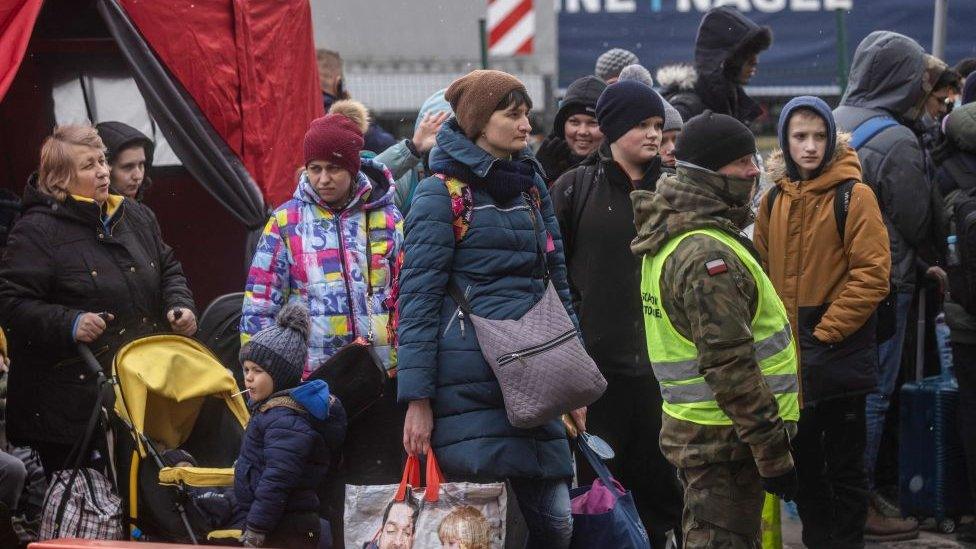
- Published28 July 2021
